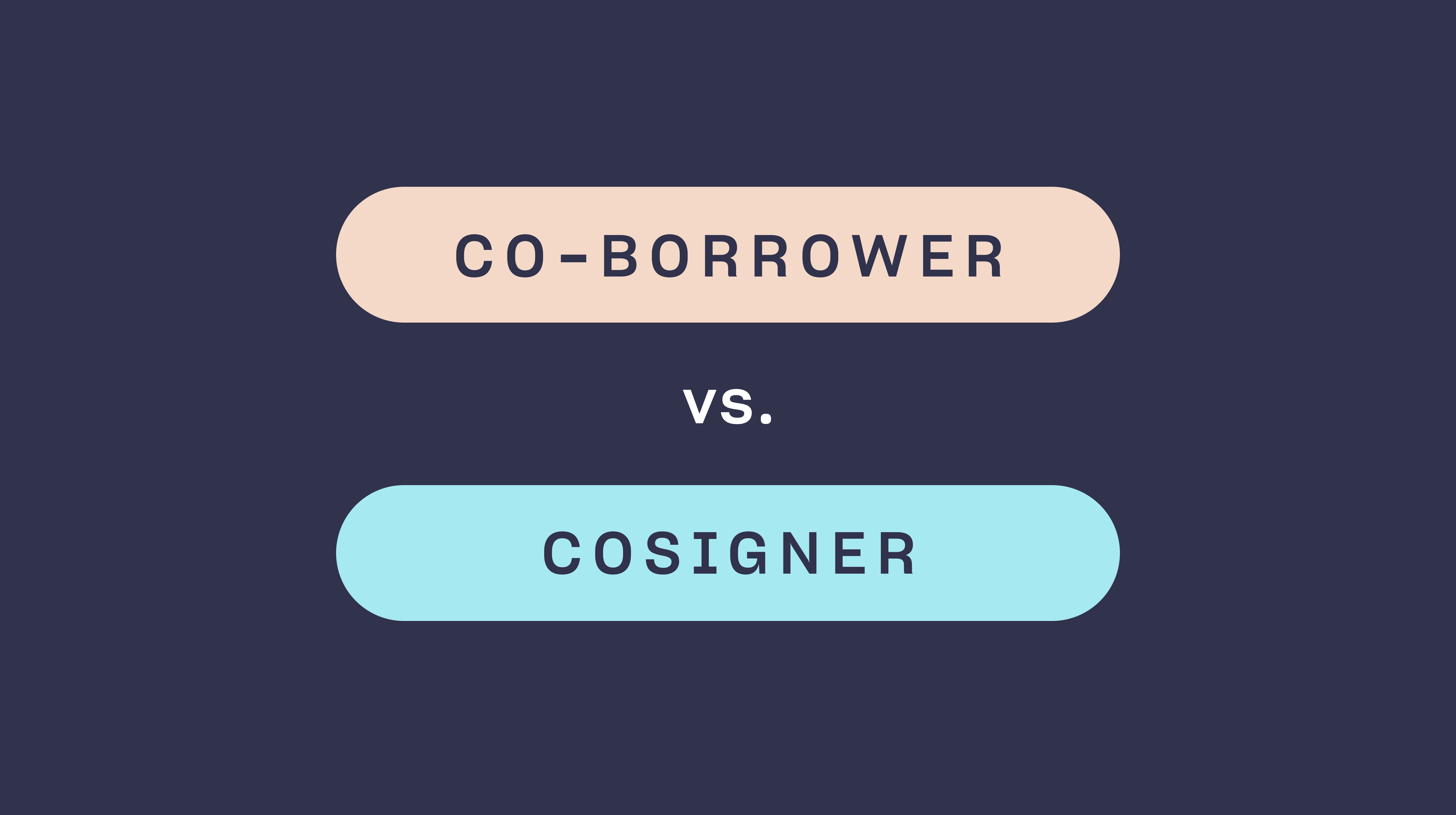When navigating the complex world of loans and mortgages, you'll likely encounter the terms "co-borrower" and "co-signer." Though they might sound similar, these roles carry significantly different legal and financial responsibilities. Whether you're considering purchasing a home with a partner or helping a family member secure financing, understanding these distinctions is crucial for making informed decisions.
In this comprehensive comparison, we'll break down the fundamental differences between co-borrowers and co-signers, examining their rights, responsibilities, and impact on loan approval. By the end, you'll have a clear understanding of which option might be better suited for your specific financial situation.
Co-Borrower vs Co-Signer: Key Differences at a Glance
| Feature | Co-Borrower | Co-Signer |
|---------|------------|-----------|
| Ownership Interest | Has equal ownership rights to the property | No ownership rights to the property |
| Responsibility for Payments | Equally responsible for monthly payments | Only responsible if primary borrower defaults |
| Credit Impact | Loan appears on both credit reports | Loan appears on both credit reports |
| Income Consideration | Combined income used for qualification | Income used as backup for qualification |
| Application Involvement | Fully participates in loan application | Limited participation in application process |
Co-Borrower: Defined and Explained
A co-borrower is an equal partner in the loan agreement who shares both the benefits and responsibilities of the loan with the primary borrower.
Key Characteristics of Co-Borrowers:
1. Equal Ownership Rights: Co-borrowers typically have their names on both the loan agreement and the property title, giving them legal ownership interest in the asset being financed.
2. Joint Financial Responsibility: Both parties are equally responsible for making payments, regardless of personal arrangements between them.
3. Credit Qualification: Lenders evaluate both co-borrowers' credit histories, income, and debt-to-income ratios during the application process.
4. Income Advantage: One of the most significant benefits of having a co-borrower is the ability to combine incomes for qualification purposes, potentially enabling approval for a larger loan amount.
5. Relationship Requirements: Co-borrowers are often spouses, domestic partners, or close family members, though non-related individuals can also co-borrow in many circumstances.
When to Consider a Co-Borrower Arrangement:
Co-borrowing makes the most sense when both parties will:
- Live in or use the property/asset being financed
- Benefit directly from the purchase
- Share in the financial responsibilities
- Need combined income to qualify for the desired loan amount
Co-Signer: Defined and Explained
A co-signer acts as a guarantor for the loan, promising to take responsibility for the debt if the primary borrower fails to make payments.
Key Characteristics of Co-Signers:
1. No Ownership Interest: Co-signers typically don't have their names on the property title and hold no ownership rights to the financed asset.
2. Contingent Responsibility: Co-signers are only required to make payments if the primary borrower defaults.
3. Credit Impact: The loan appears on the co-signer's credit report, and any late payments or defaults will affect their credit score, even though they may never make a payment.
4. Financial Backup: A co-signer's income and credit history serve as additional security for the lender, often enabling approval for borrowers with limited credit history or lower income.
5. Relationship Flexibility: There are generally fewer restrictions on who can serve as a co-signer, though lenders may still have specific requirements.
When to Consider a Co-Signer Arrangement:
Co-signing is typically appropriate when:
- The primary borrower has insufficient credit history
- The borrower has adequate income but poor credit
- The borrower needs help qualifying due to a high debt-to-income ratio
- The arrangement is intended to be temporary until the primary borrower establishes credit
Impact on Credit Scores and Financial Health
For Co-Borrowers:
Co-borrowing creates a deep financial connection between both parties. The loan will appear on both credit reports, and payment activity will affect both scores equally. This arrangement can be beneficial when both co-borrowers are financially responsible, potentially helping both build positive credit histories together.
However, if one co-borrower mismanages finances, both parties suffer the consequences. Since responsibility is shared equally, lenders can pursue either party for the full amount of any missed payments.
For Co-Signers:
Co-signing carries significant risk with minimal reward. While helping someone secure financing can be generous, co-signers take on substantial liability without gaining ownership benefits. The debt appears on the co-signer's credit report and is factored into their debt-to-income ratio, potentially limiting their ability to secure their own financing while the loan remains active.
If the primary borrower misses payments, the co-signer's credit score will suffer, and they'll be legally obligated to cover the payments. This arrangement has strained many family relationships and damaged financial health when borrowers fail to meet their obligations.
Legal Implications and Exit Strategies
For Co-Borrowers:
Exiting a co-borrower arrangement typically requires:
- Refinancing the loan in one borrower's name
- Selling the property and paying off the loan
- One borrower buying out the other's interest
These processes can be complicated, especially if the relationship between co-borrowers deteriorates or if one party can't qualify for refinancing alone.
For Co-Signers:
Some loans offer co-signer release provisions after the primary borrower makes a certain number of on-time payments and meets credit requirements. However, not all loans include this option, and the release typically requires the lender's approval based on the primary borrower's improved financial position.
Without a formal release, a co-signer remains legally bound to the loan until it's paid in full, refinanced, or otherwise satisfied.
Making the Right Choice for Your Situation
When deciding between co-borrowing and co-signing, consider these essential questions:
1. What is the intended role? Will both parties benefit from and use the property, or is one person simply helping the other qualify?
2. What is the relationship between the parties? Close, stable relationships generally fare better in these financial arrangements.
3. What are the long-term plans? Consider how the arrangement might affect future financial goals, including the ability to secure additional credit.
4. What is the financial stability of all involved? Honest assessment of everyone's financial habits and stability is crucial before entering either arrangement.
5. Have you considered alternatives? Options like gift funds for down payments, FHA loans with lower requirements, or waiting to build credit might be preferable to co-signing or co-borrowing in some situations.
Conclusion: Which Option Is Right for You?
Co-borrowing is generally better when:
- Both parties will live in or use the property
- Both will contribute to payments
- The relationship is stable and long-term
- Combined incomes are needed to afford the desired property
Co-signing is typically more appropriate when:
- One party simply needs help qualifying
- The arrangement is intended to be temporary
- The primary borrower has the income to make payments but lacks credit history
- The helper wants to assist without sharing ownership
Both arrangements create significant financial interconnection between the parties involved. Before entering either relationship, consider consulting with a financial advisor and perhaps an attorney to fully understand the implications for your specific situation.
Remember, while these arrangements can open doors to homeownership or other financing that might otherwise be inaccessible, they also create binding legal obligations that can be difficult to unwind. Careful consideration and open communication between all parties are essential for successful outcomes.
Have you had experience as either a co-borrower or co-signer? What factors influenced your decision?

